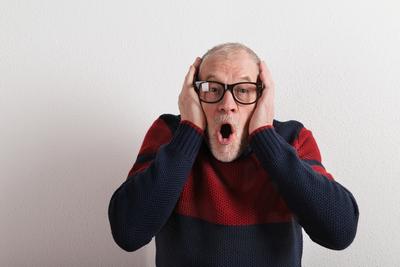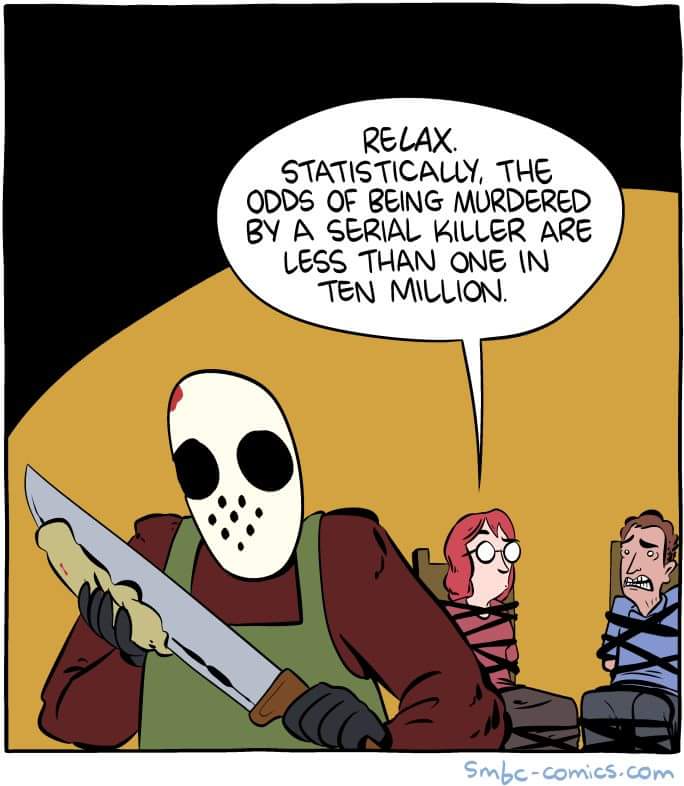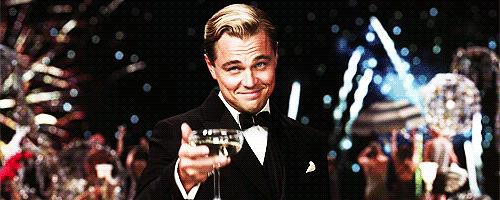Don't get nationalistic, Americans, we didn't invent it, lotteries were held as far back as 200 BC. Government gambling financed the Great Wall of China and the Revolutionary War. Alexander Hamilton wrote in 1793 for the directors of the Society for Establishing Useful Manufactures that they should have a national lottery and "That it be simple and summary; because it will be more readily understood by every body&the imagination will see fewer obstacles between hope and gratification." And that guy starred in a Broadway musical!
What is more simple than a lottery of random numbers or numbers you choose? What is more hopeful than the idea that you have a 50/50 chance of winning $510 million on Saturday?
Wait, 50/50? Aren't the odds 1 in 292.2 million?

Well, they are. And to put that giant number in context, you have a greater chance of being killed by a falling coconut (1 in 250 million) while you have a 1 in 500,000 chance of dying from an asteroid. So your odds are 500X greater of dying from an asteroid than hitting the Powerball. (1)
It's still 50/50. Almost.
We live in a world of absolute risk and relative risk, and usually that is shown by crazy claims about food or chemicals, like a statistics paper that declares people who ate chicken hot dogs had a higher chance of going to Harvard or whatever. If twice as many people who ate chicken hot dogs went to Harvard, that sounds like a reason to eat chicken hot dogs and Danny Hakim at the New York Times will write it as settled food science. If I then showed you that absolute number was instead two out of a million rather than one out of a million for people who ate beef hot dogs, you are going to go ahead and enjoy a hamburger instead.
Here is a way to look at absolute and relative risk from the other side.

So it is 1 in 292.2 million but still 50/50 because if there is a winner drawn it is either you or not, just like the other 1 in 292.2 million chances. Looked at in the perspective of coconut deaths, your odds of dying overall are 100 percent, so it's at least smarter to bet on the Powerball than against the Hayflick Limit.
Anyway, it's not exactly 50/50, there is a chance that no winner will be drawn at all, that is how it got to $510 million. But if a winner is chosen and your chances are 1 in 292.2 million, just like everyone else, then you either won or not. Your relative odds are 50/50. Unless you believe someone else has better luck than you. And if you believe in luck, you are the perfect customer for lottery tickets.
NOTE:
(1) If I win, which will only happen if my wife buys a ticket because I am not wasting money on the lottery, I will then take the risk on champagne corks, even though there is a 1 in 450,000,000 chance it will kill me and I won't enjoy my $510 million at all. You will be welcome to join me.

Hank Campbell is the President of the American Council on Science and Health, a pro-science consumer advocacy group in New York City, and is the founder of Science 2.0. He does not receive any funding from Big Lottery.




Comments